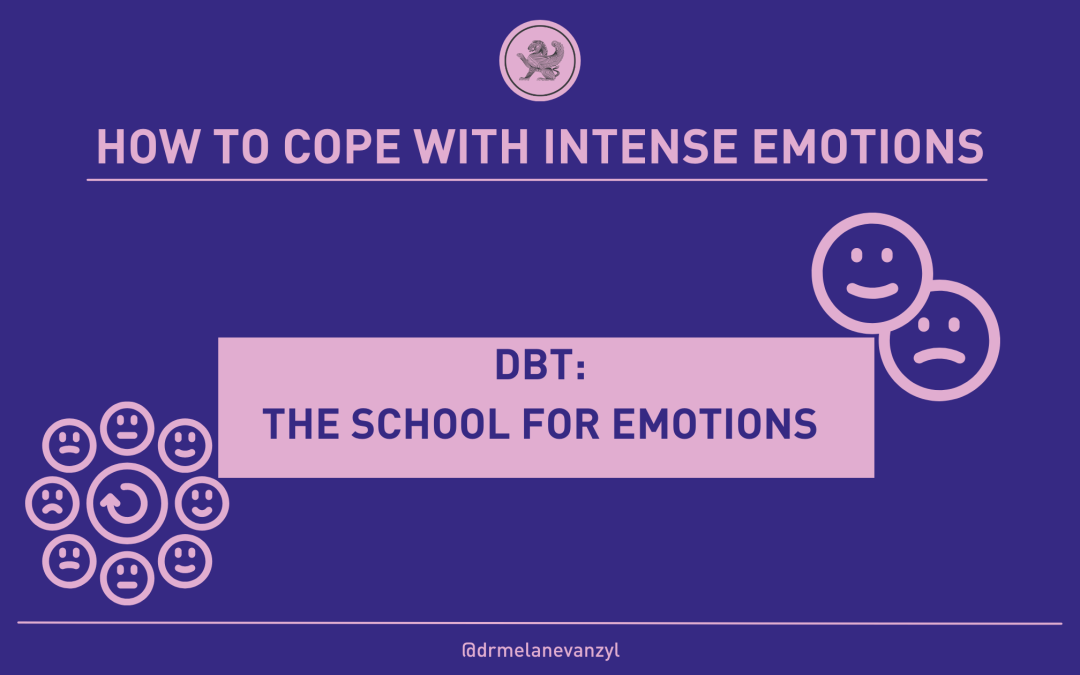CREDITS
Dr Melane van Zyl
The most effective way to learn to cope with intense emotions
Many people present to a psychiatrist or psychologist saying, “I cannot cope,” or “I cannot control my emotions. They have noticed that they repeatedly behave in a certain way that makes things worse.
To help people that come to us for help, the most effective treatment is to teach skills on how to regulate emotions and to be able to get through a crisis without making things worse.
It is much more difficult for some people to control their emotions. This is due to the interaction of two factors:
• Some people are born with a tendency to be more vulnerable to stress. Their emotions flare quickly, and it takes longer to feel calm again.
• Then they grow up in an environment that does not validate their feelings. Such people have these intense emotions, but those close to them ignore or judge them.
Soon a vicious cycle develops. Being highly sensitive, your feelings are easily hurt. You cannot hide that you feel hurt and react with emotions such as crying or shouting and behaviours such as isolating yourself or even hurting yourself. Afterward, you feel bad about being over-emotional and fighting, and these feelings of guilt and shame set you up for being even more sensitive.
If you grow up feeling different than your family and others close to you, and if they make you feel bad about being different, it causes poor self-esteem and difficulties in trusting yourself. As life goes on, there is a pattern of high sensitivity, overreaction to stress, feelings of guilt and shame, and poor self-esteem (and even self-hatred), leading to becoming more sensitive, impulsive, and out of control.
How do you break free from this pattern? Telling it to a psychiatrist or psychologist might make you feel more validated, e.g., you can understand why you behave like this and that it is an extremely common problem.
However, it won’t break the vicious cycle. You will still be sensitive and react emotionally.
So let me introduce the School for Emotions, aka DBT.
DBT (Dialectical Behavioural Therapy) is a skills-based program where you learn skills that change your behaviour with immediate effect. DBT is not a quick fix; the full program takes 24 weeks.
DBT is a multi-diagnostic therapy. In other words, it is effective for many psychiatric disorders.
This year we will offer the DBT program with more flexibility:
• There is an option to do one 8-week module at a time
• Medical aid funding is available
• We will offer the 24-week program in a self-paced, pre-recorded format
DBT online: Mondays and Wednesdays 16:00-17:30
To enroll in a DBT program: email info@drmelanevanzyl.com

